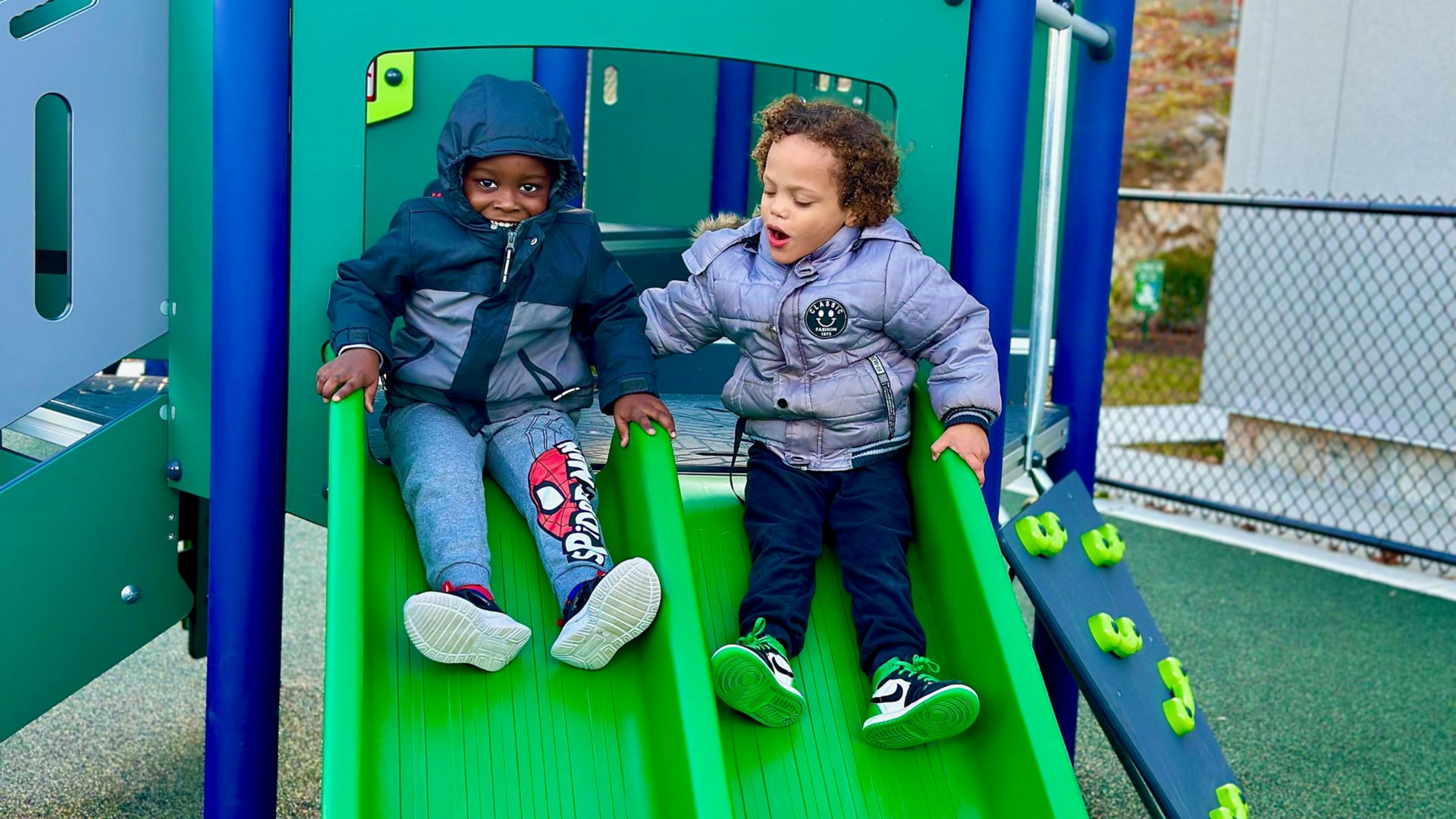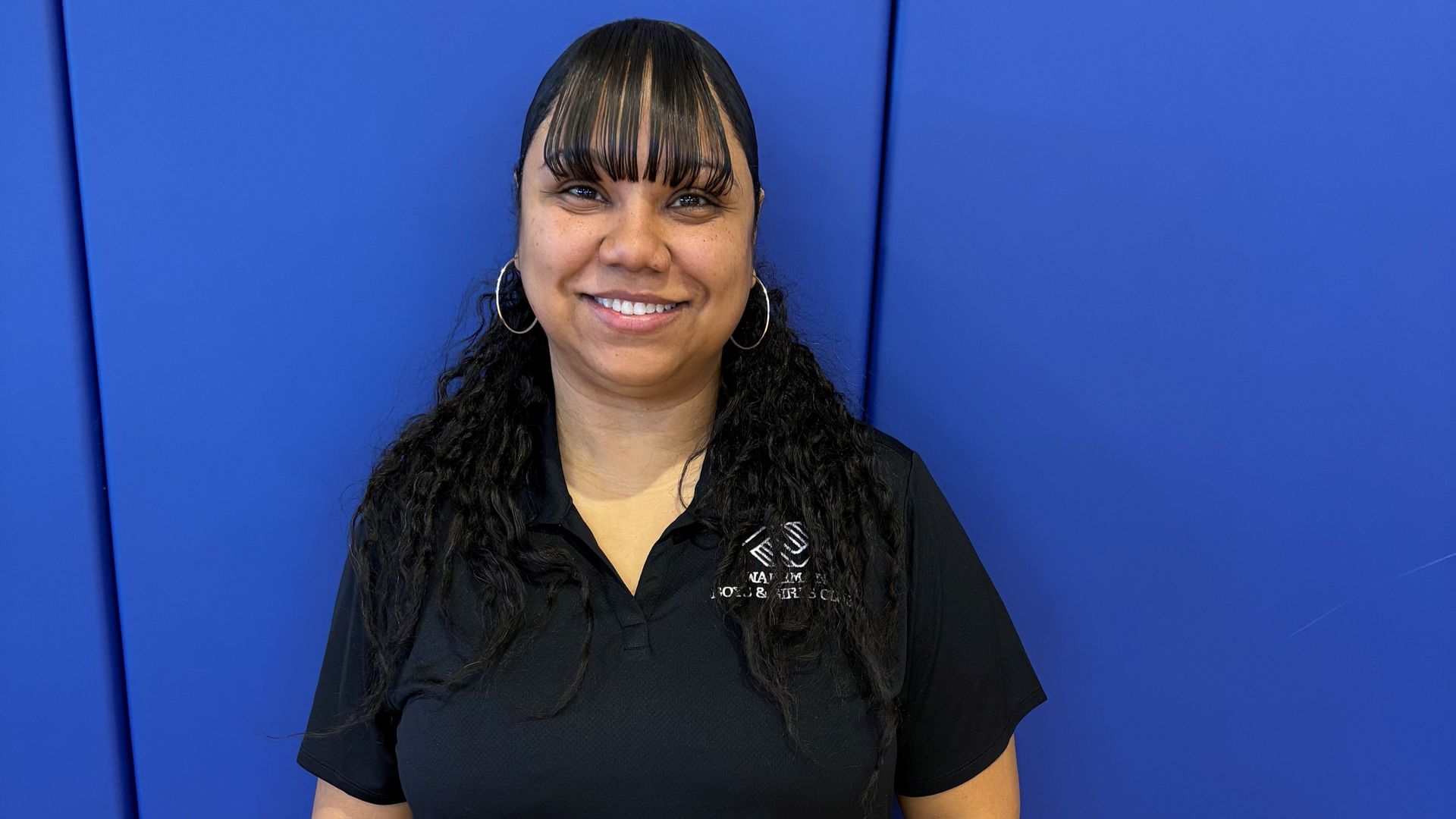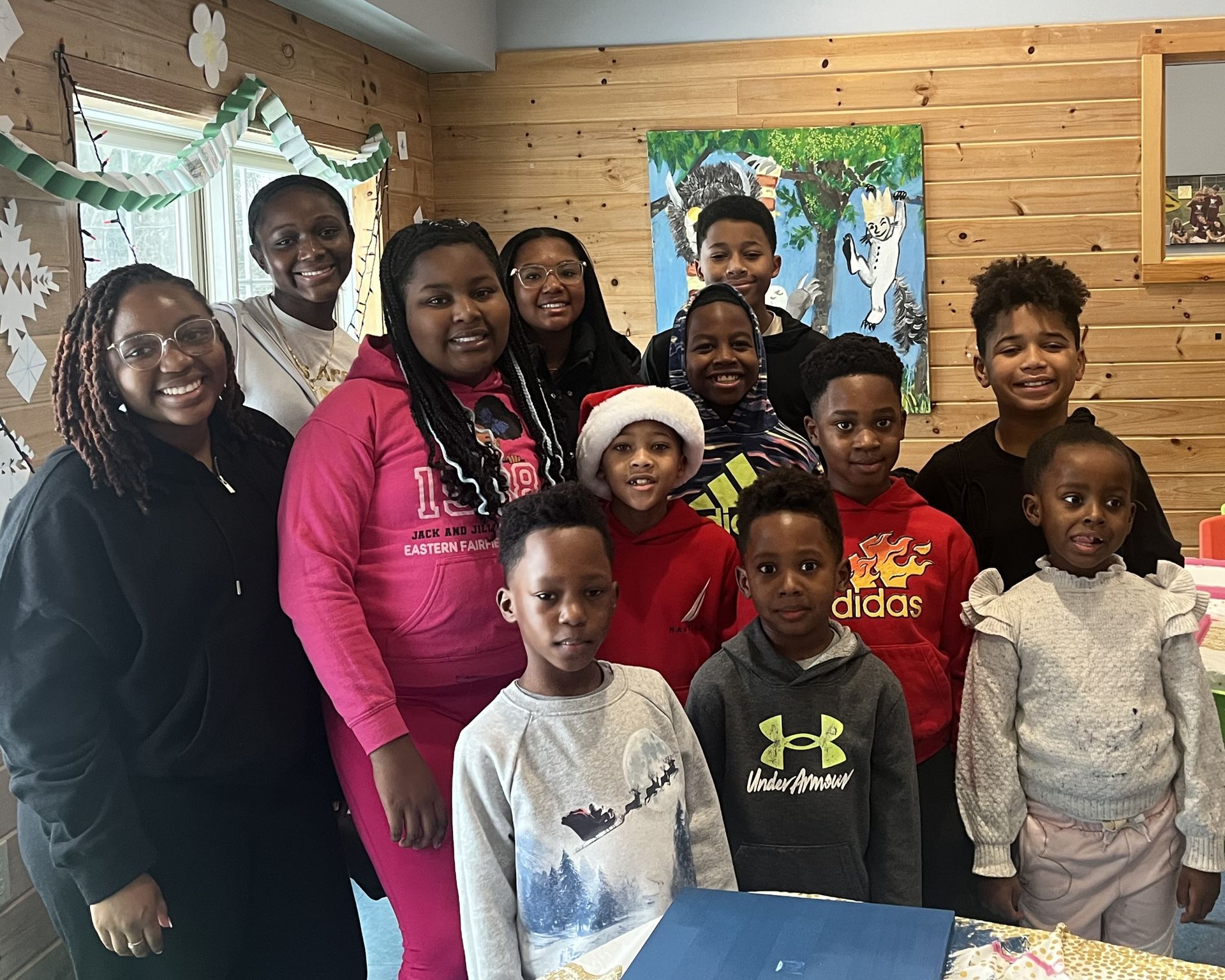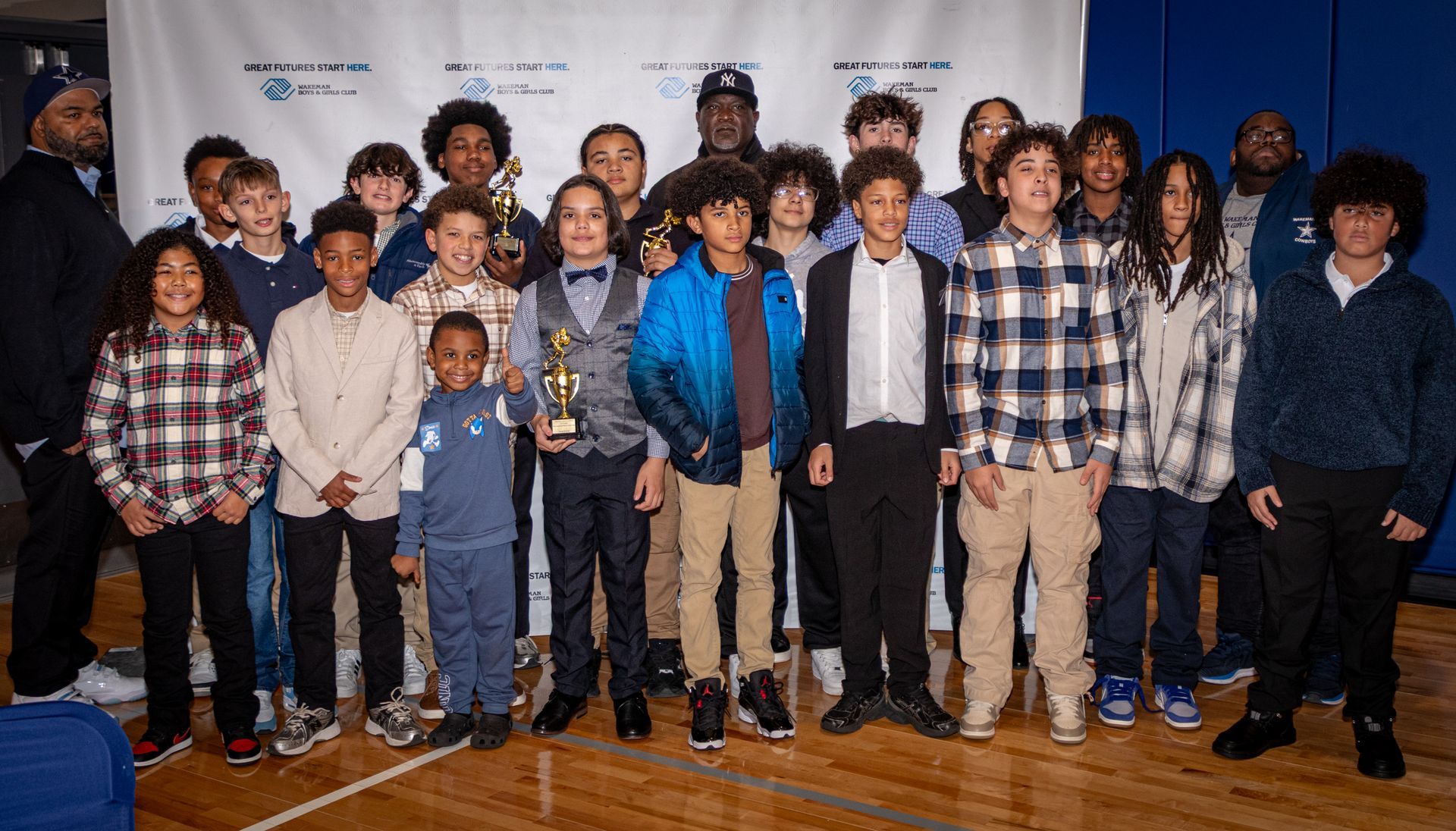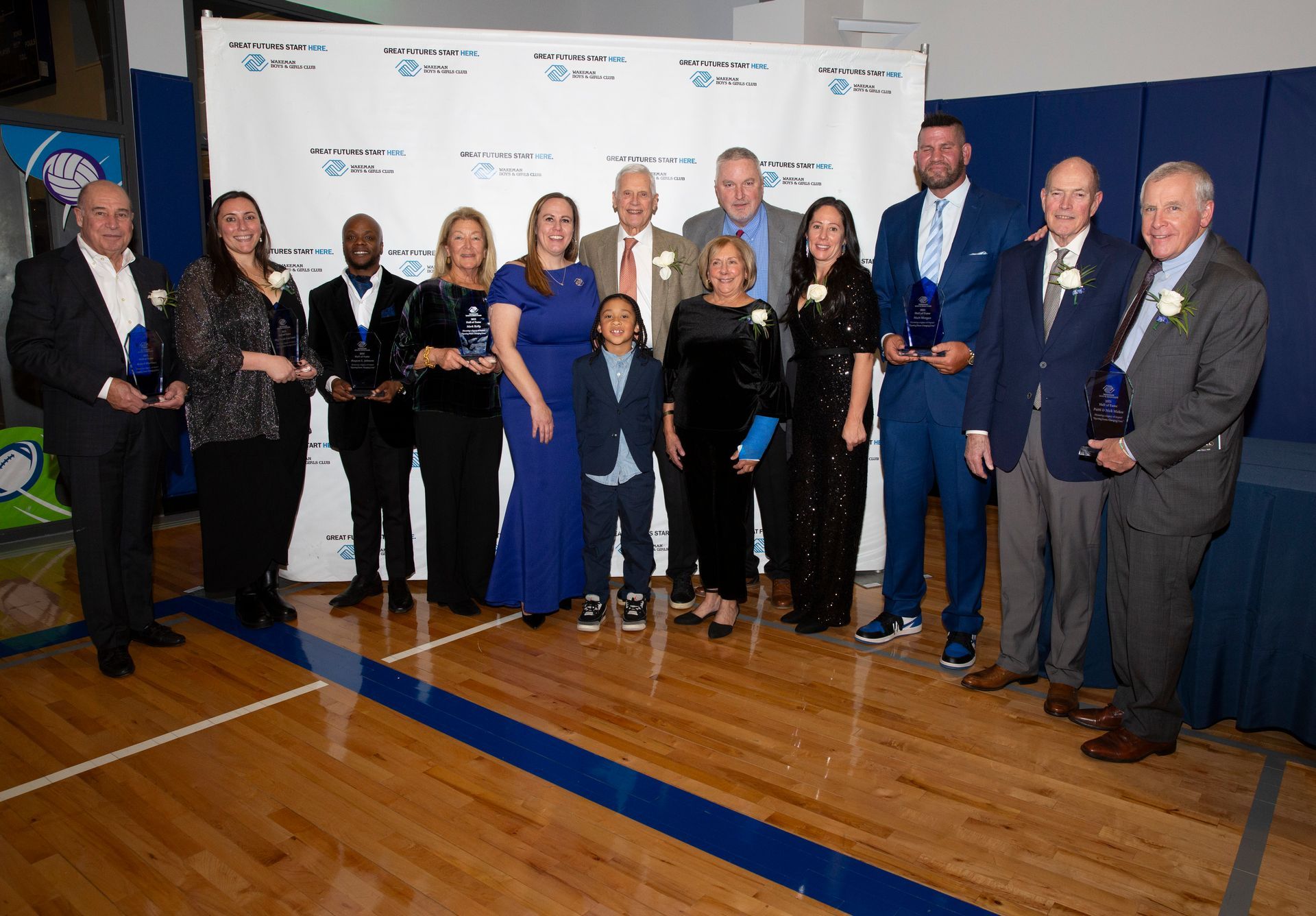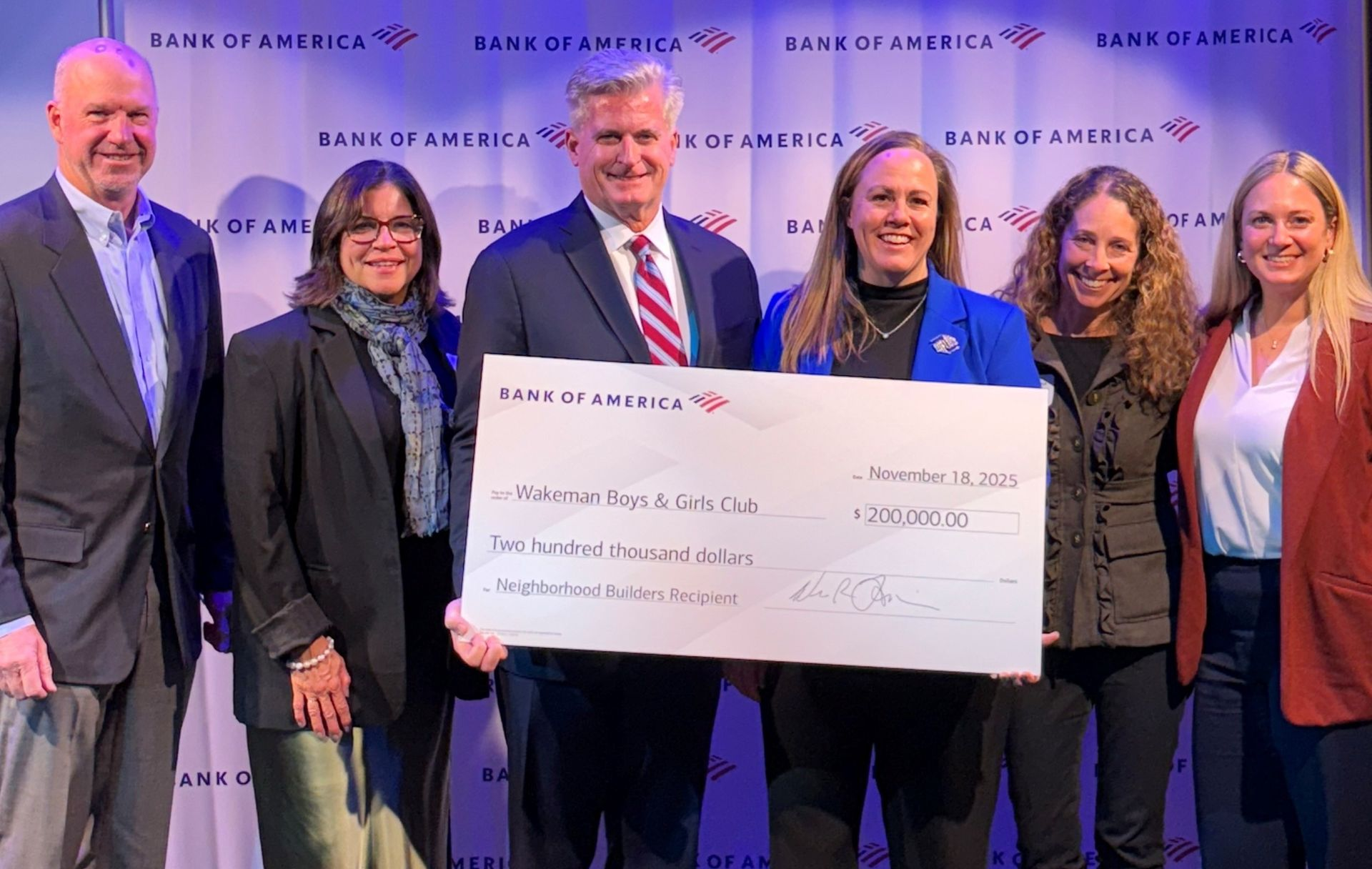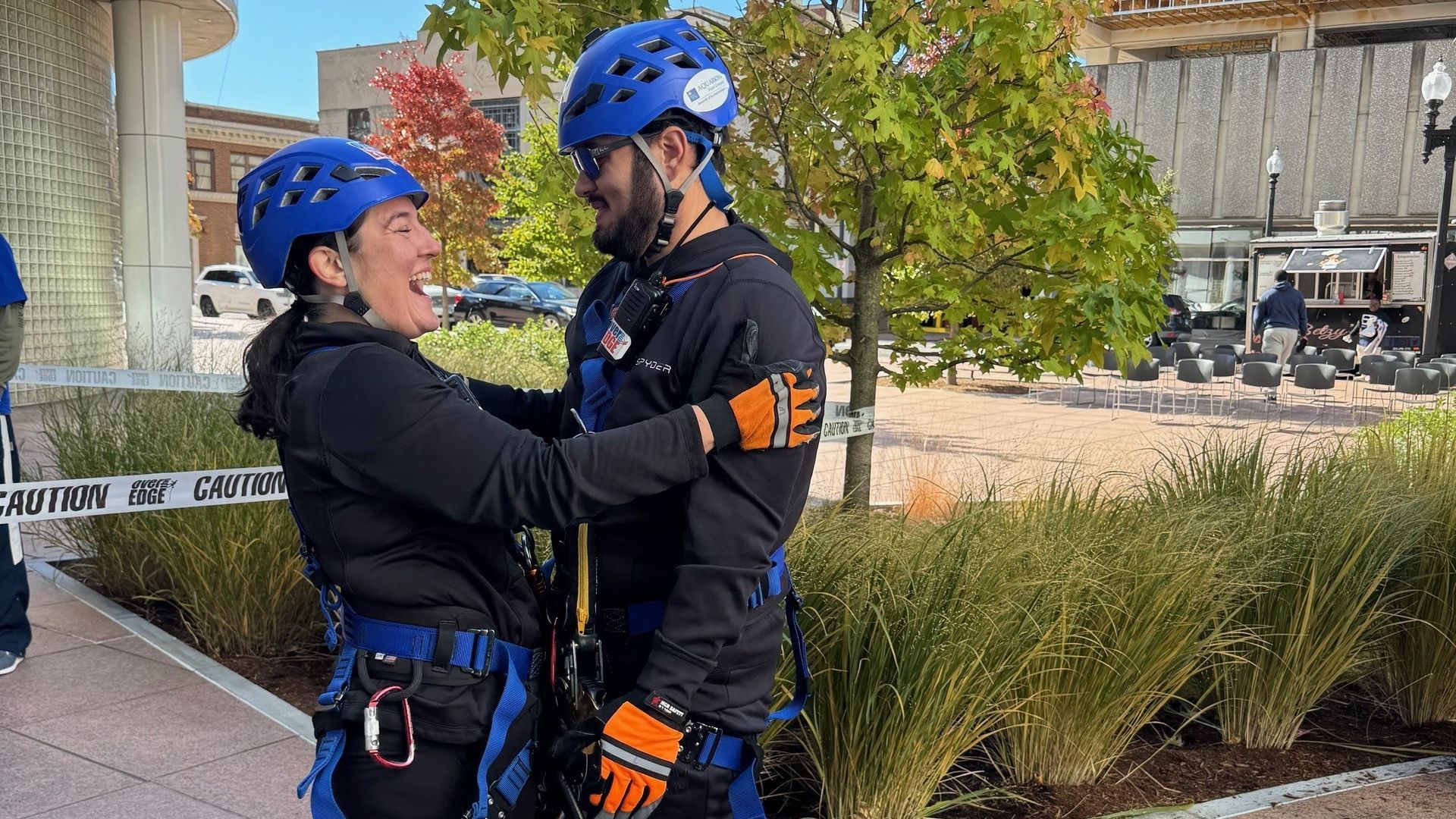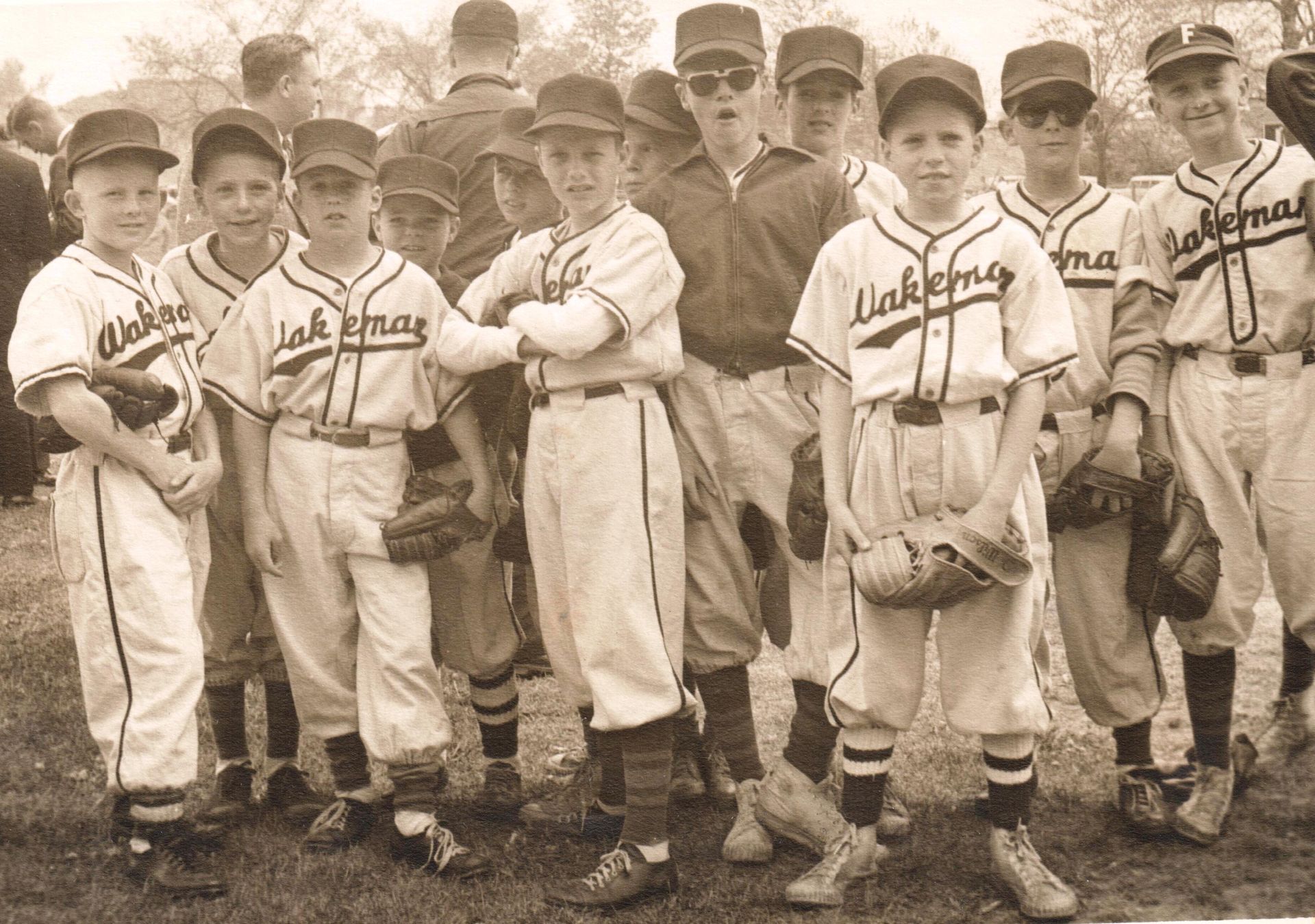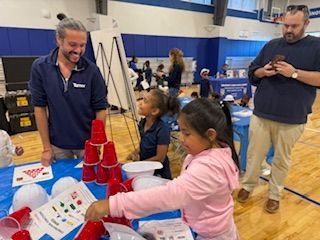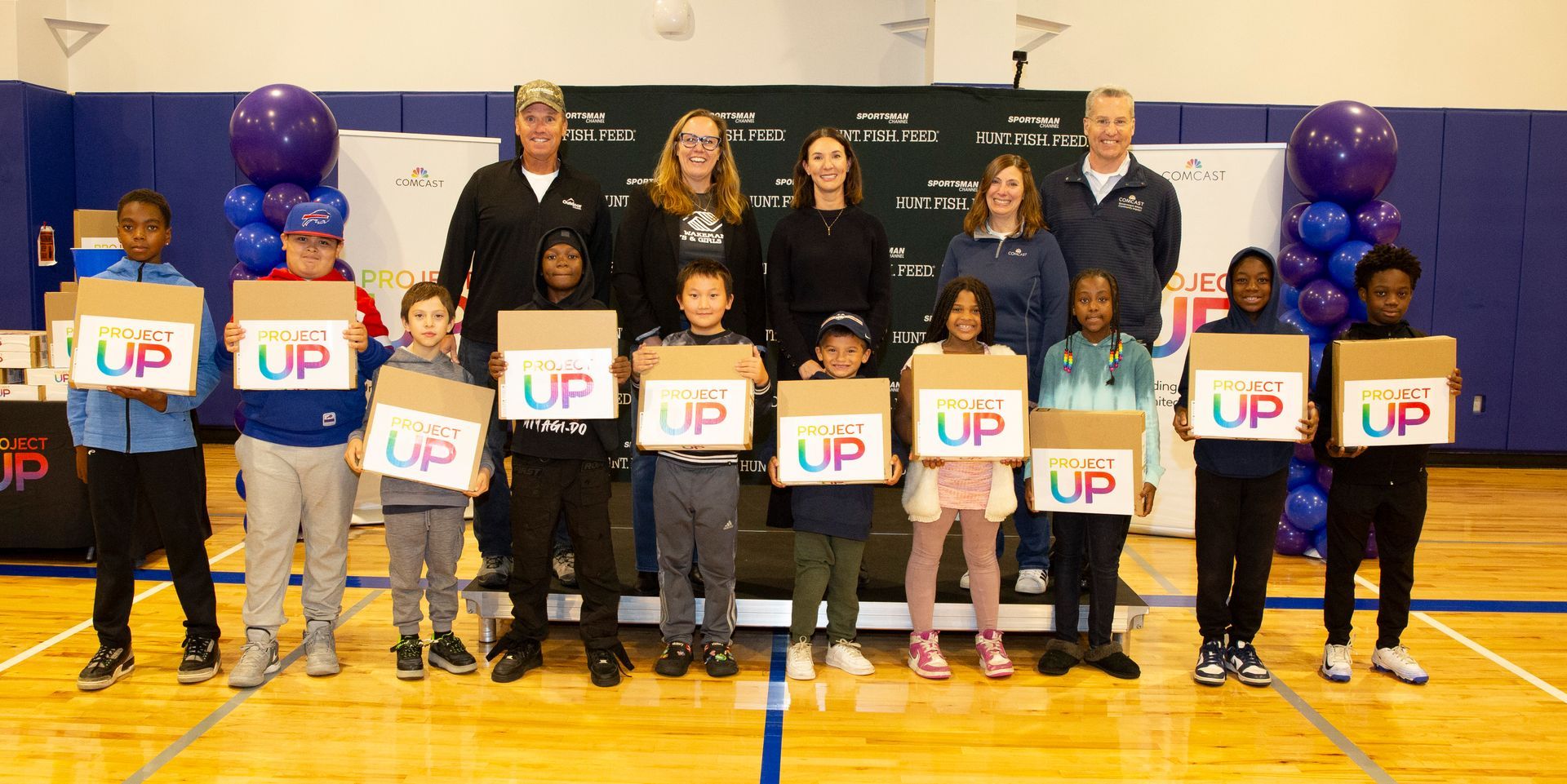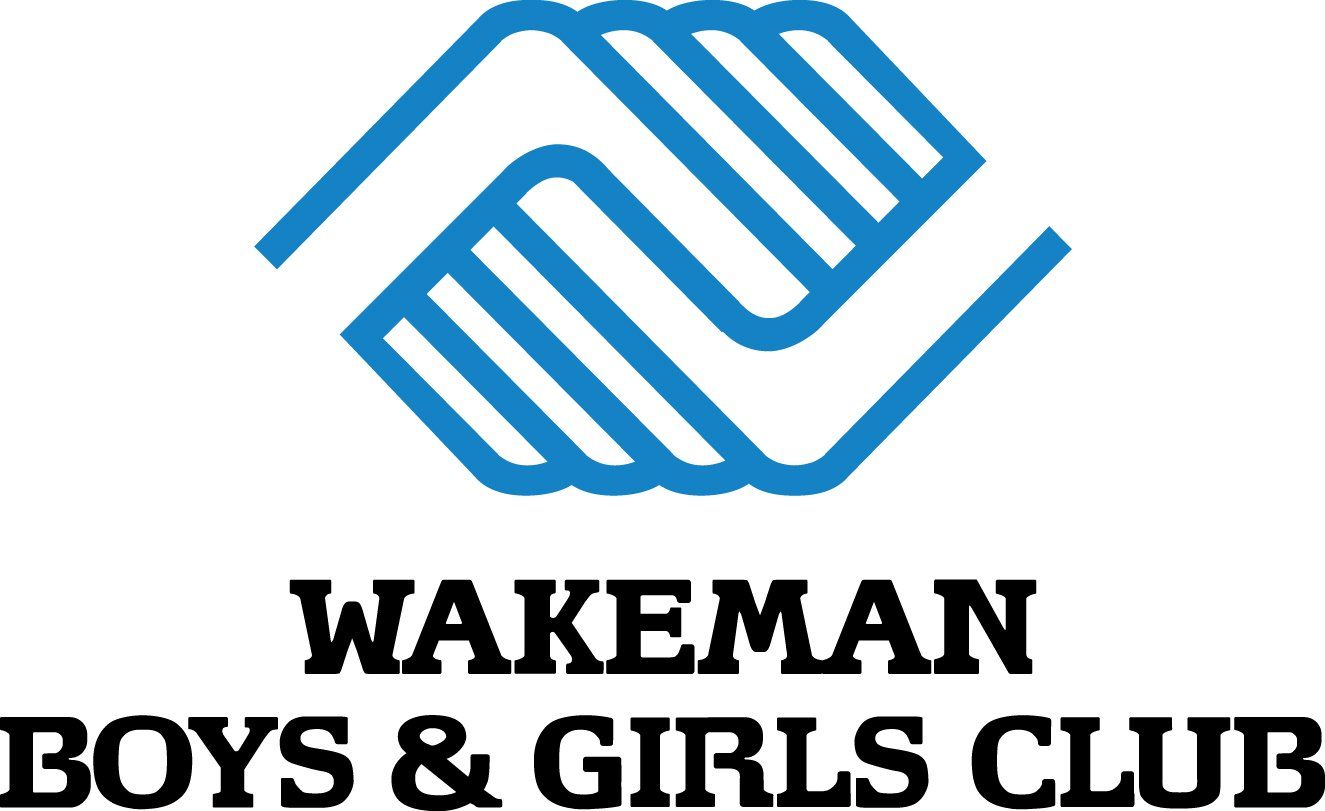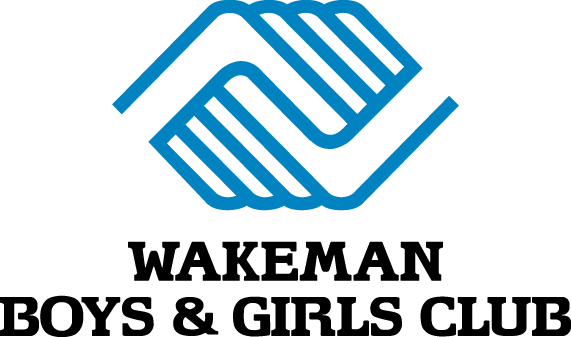Wakeman BGC's mentoring program was featured in the Fall 2021 BGCA Federal Grant Central Newsletter. Article provided by Boys & Girls Clubs of America.
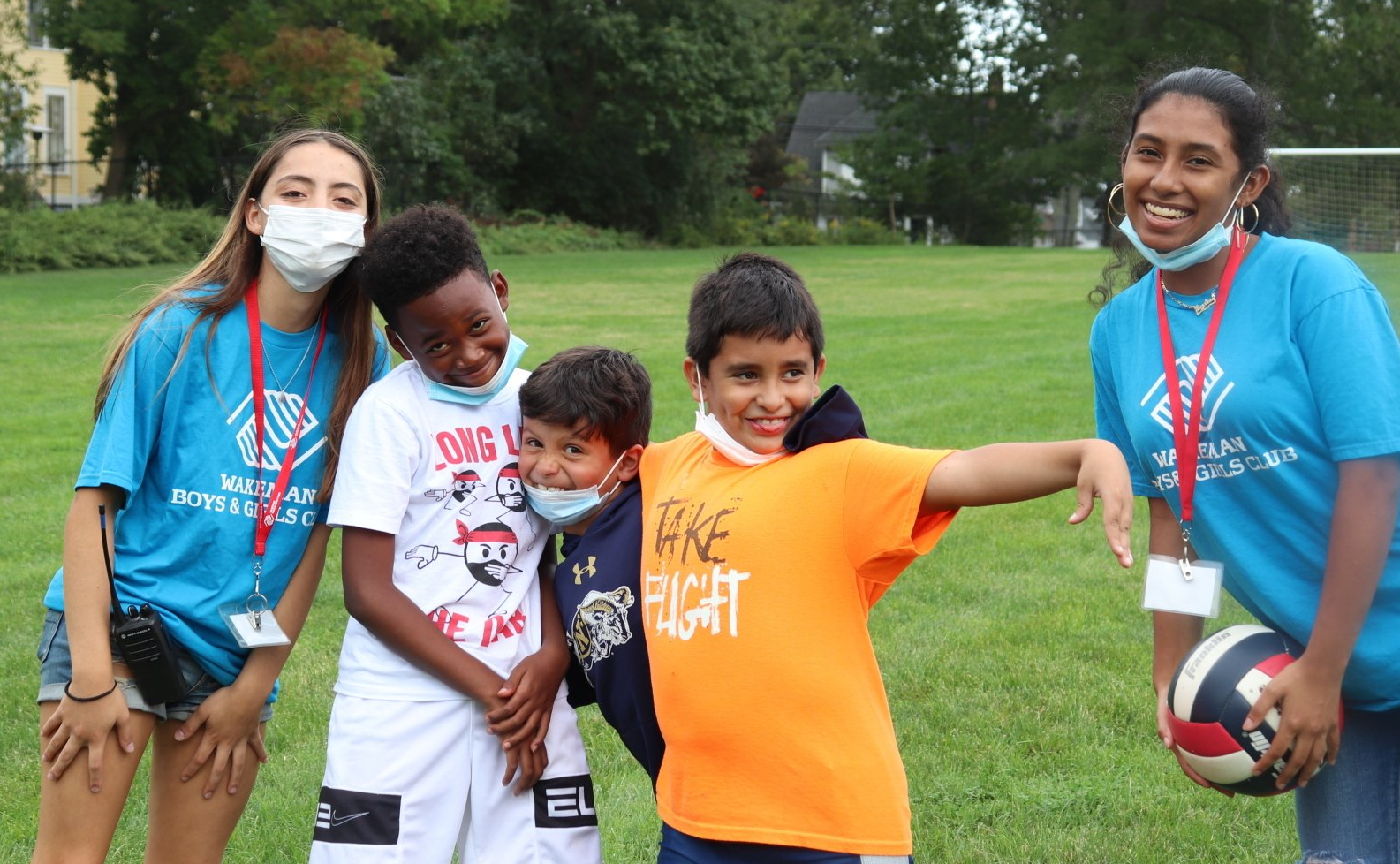
Peer Mentors and Engagement with Law Enforcement: Wakeman Boys & Girls Club
BGCA, December 2021
While Boys & Girls Clubs of America’s (BGCA) Office of Juvenile Justice and Delinquency Prevention (OJJDP) National Mentoring Program is offered Movement-wide, it is often necessary for local Clubs to adapt the focus of their programming to best suit the needs of the youth they serve. Over its 17-year history implementing the OJJDP mentoring program, Wakeman Boys & Girls Club has consistently employed this adaptability to maintain quality mentoring services for its members. Through their use of teen and adult mentors and approach to police engagement, the Club has implemented its program in a way that is beneficial not only to participating youth but also the surrounding community.
One of the defining aspects of Wakeman Boys & Girls Club’s OJJDP mentoring program is its use of teen mentors. Located at the Club’s site at McKinley Elementary School in Fairfield, Connecticut, the program draws mentors from area high schools, who work with mentees in a one-to-one mentoring program model. The Club conducts a full interview with each potential teen mentor before the start of their mentoring term. Unit Director, Tim Cepetelli, reflects on this process: “During the interview, we get to know teens and try to initiate matches based on common interests. This matching process has helped our program run smoothly.”
Once teen mentors have been properly interviewed and trained, they are ready for program involvement. A major benefit of recruiting teens is younger mentors often find it easier to relate to mentees. The smaller age difference allows teen mentors to have a closer connection to school/life issues mentees may have, which in turn helps improve program involvement. “The mentees want to be in the program, they want to have a teen mentor. It makes others receptive to it,” says Cepetelli.
As added support for its teen mentors, the Club also recruits adult mentors to act as chaperones. A group of 10 adult mentors guide less experienced teen mentors, with three coming in each week to help with the program. With their Club knowledge – many are parents of children who were Club members – and personal and professional expertise, adult mentors form a strong support system. Program Director Coreen Ahmad explains, “Chaperones are knowledgeable; they walk around to engage with teens and mentees. When something comes up that the teen needs back-up on, they can work with the adult.”
Adds Cepetelli, “They are not just getting to know the mentees; they are also getting to know the teens.” Through this added support, the adult mentor plays an important role in the sustainability of the Club’s OJJDP Mentoring Program.
A unique element of the Club’s OJJDP mentoring program is the manner in which it partners with the local police. Police officers from the Fairfield Police Department are a regular and friendly presence at the Club, engaging with youth and playing games such as football and basketball. The police K-9 unit is particularly appealing to youth, with police dogs brought in on a regular basis. Says Ahmad, “The kids can pet the dogs and engage with the officers. A penny carnival was even held to raise money to donate to the K-9 unit.” This engagement has helped change youth perspectives. Ahmad reflects, “Some kids were initially fearful of local law enforcement. Seeing a police officer as a regular person —someone you might see at the grocery store—makes them feel at ease. Now there is more engagement, with kids seeing police on a more regular basis. They have conversations about law enforcement as a career choice and have generally opened up the lines of communication.”
Cepetelli adds, “There is a wide variety of officers who look like our kids, including female and minority officers. Seeing police officers who look like them is very impactful for the kids. They ask questions and are drawn to talk to them.” This aspect of the Club’s OJJDP mentoring program has created positive connections with the local police department, improving perceptions for mentees and teen mentors.
Through the use of teen mentors under adult supervisions, and a strong commitment to police engagement, the Wakeman Boys & Girls Club has created a space that positively impacts youth and mentors. Cepetelli also reflects on the impact it has had on a larger scale: “The program’s presence has helped kids engage more with this community. This also has allowed us to form stronger relationships with families.” Over its 17-year presence in the community, the Club’s OJJDP mentoring program has proved to be an invaluable resource to area youth and an asset to the wider community.
